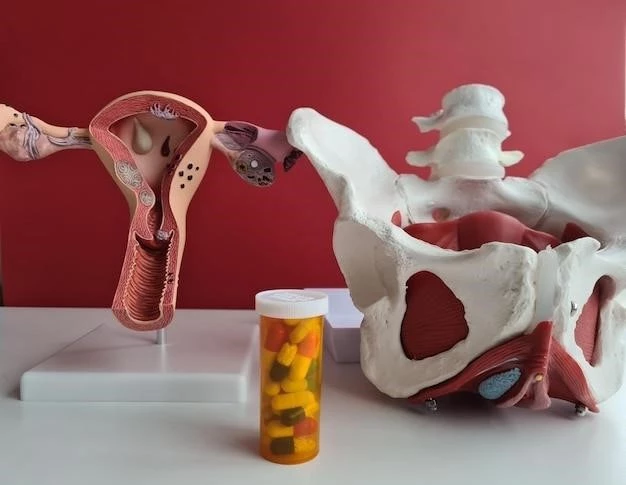Introduction to Turner Syndrome
Introduction. Turner Syndrome is a rare genetic disorder primarily affecting females due to missing or altered X chromosomes, leading to various manifestations including ovarian dysfunction.
Turner syndrome is a rare genetic disorder that affects females. It is characterized by missing or altered X chromosomes, resulting in various developmental abnormalities. Common features include short stature, ovarian dysfunction, congenital heart defects, and endocrine issues. The absence of one X chromosome leads to primary amenorrhea and infertility in many affected individuals. Clinical manifestations vary widely, but early diagnosis and management are crucial for optimizing patient outcomes.
Overview of Turner Syndrome
Turner syndrome is a genetic disorder in females, involving missing or altered X chromosomes. Commonly, it leads to developmental abnormalities like ovarian dysfunction, heart defects, and endocrine issues.
Skeletal, Cardiovascular, and Endocrine Abnormalities
In Turner syndrome, individuals may experience skeletal issues such as short stature, cardiovascular abnormalities like congenital heart defects, and endocrine problems. These abnormalities are key clinical manifestations that require comprehensive medical management.
Ovarian Dysfunction in Turner Syndrome
Ovarian dysfunction is a common feature in Turner syndrome, characterized by early loss of ovarian function, leading to primary amenorrhea, infertility, and other reproductive challenges.
Impact on Ovarian Function and Development
Turner syndrome profoundly affects ovarian function and development due to chromosomal abnormalities. Most individuals with Turner syndrome experience early loss of ovarian function, leading to primary amenorrhea and infertility. This significant impact necessitates specialized medical management to address reproductive challenges.

Diagnosis of Ovarian Dwarfism as Part of Turner Syndrome
Diagnosing ovarian dwarfism in Turner syndrome involves evaluating hormonal levels, potential genetic tests, and assessing physical manifestations associated with primary amenorrhea and ovarian dysfunction.
Identifying Ovarian Dwarfism in the Context of Turner Syndrome
In Turner syndrome, diagnosing ovarian dwarfism involves assessing hormone levels, genetic testing, and physical examination to identify signs of poor ovarian development and function, such as primary amenorrhea and infertility, which are common features in affected individuals.
Treatment Options for Ovarian Dwarfism in Turner Syndrome
Treatment for ovarian dwarfism in Turner syndrome may involve hormone replacement therapy, fertility treatments like oocyte donation or in vitro fertilization (IVF), and close monitoring of reproductive health to manage challenges associated with primary amenorrhea and infertility.
Managing Ovarian Dysfunction in Individuals with Turner Syndrome
Effective management of ovarian dysfunction in Turner syndrome includes hormone replacement therapy to address hormonal imbalances, fertility treatments such as oocyte donation or in vitro fertilization to enhance reproductive potential, and regular monitoring to optimize reproductive health outcomes in individuals with this condition.
Fertility Considerations in Turner Syndrome
Fertility in Turner syndrome is affected by ovarian insufficiency, leading to challenges in achieving natural conception. Assisted reproductive technologies like oocyte donation and in vitro fertilization are options for women with Turner syndrome desiring pregnancy.
Challenges and Approaches to Fertility in Turner Syndrome
Women with Turner syndrome face challenges in fertility due to ovarian dysfunction. Assisted reproductive technologies, such as oocyte donation and in vitro fertilization, provide approaches to expanding family options for individuals with Turner syndrome seeking pregnancy.
Pre-pregnancy Counseling and Pregnancy Risks
Pre-pregnancy counseling in Turner syndrome encompasses discussions on fertility challenges, assisted reproductive options, and potential pregnancy risks associated with cardiovascular and endocrine abnormalities, emphasizing the importance of expert guidance and monitoring.
Guidelines and Monitoring for Women with Turner Syndrome
Guidelines for women with Turner syndrome focus on pre-pregnancy counseling, addressing fertility challenges, and monitoring during pregnancy to mitigate risks associated with cardiovascular and endocrine issues commonly seen in individuals with this genetic condition. Regular follow-up and specialized care are essential to ensure optimal maternal and fetal outcomes.
Research and Studies on Ovarian Dysfunction in Turner Syndrome
Research indicates that Turner syndrome, characterized by chromosomal abnormalities, leads to ovarian dysfunction, impacting fertility. Studies highlight the association between ovarian insufficiency, primary amenorrhea, and challenges in achieving puberty and fertility in affected individuals.
Insights from Medical Literature and Case Reports
Medical literature and case reports provide valuable insights into the correlation between Turner syndrome and ovarian dysfunction, highlighting the implications for fertility and reproductive health; Studies examine the genetic mechanisms, clinical presentations, and management strategies for individuals with Turner syndrome experiencing ovarian insufficiency.
Current Recommendations and Guidelines
Current recommendations suggest pre-pregnancy counseling, addressing fertility challenges, and monitoring pregnancy risks associated with Turner syndrome’s cardiovascular and endocrine issues. Expert guidelines aim to optimize maternal and fetal outcomes through specialized care and monitoring.
Expert Recommendations for Managing Ovarian Dwarfism in Turner Syndrome
Experts recommend individualized approaches to manage ovarian dwarfism in Turner syndrome, focusing on hormone replacement therapy, fertility interventions like oocyte donation or in vitro fertilization, and regular health monitoring to address reproductive challenges while considering the genetic and clinical nuances of each patient.

Case Studies and Outcomes in Turner Syndrome
Studies on oocyte donation with IVF in Turner syndrome demonstrate promising neonatal outcomes, providing insights into fertility management and successful pregnancies among affected individuals.
Analysis of Pregnancy Outcomes and Fertility Treatments
Studies examining oocyte donation with in vitro fertilization (IVF) in women with Turner syndrome reveal positive neonatal outcomes, emphasizing the effectiveness of fertility treatments and the potential for successful pregnancies in this population.
Conclusion
Turner syndrome, characterized by chromosomal abnormalities, poses significant challenges such as ovarian dysfunction and short stature. Managing fertility through hormone replacement therapy, oocyte donation, and IVF offers promising outcomes, demonstrating the potential for successful pregnancies in affected individuals.
